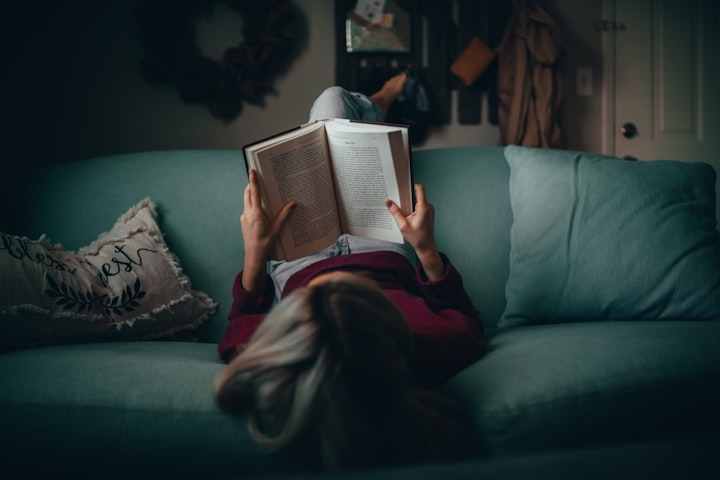
We write because we have a story to tell. We read a story told by someone else. In this relentless loop, every writer is a reader by nature. I doubt there’s a single writer out there whose journey hadn’t started as a reader first.
I was nine or ten when I exhausted my mother’s collection of books. I was too young to understand most of what I was reading (after all, they were all books meant for adults!), but I kept reading anyway. Reading, for me, has always been like life itself. Books were like breath to me. I felt like suffocating if I didn’t read. I was banned from reading books outside of textbooks during exams, and those days were the worst!
Like any avid reader, I danced around the concept of writing my entire life. During my pre-teen years, I wrote poems and even stories in a cheap diary that my aunt had gifted me. But as I grew older, I started to find excuses for not writing anything creative for one reason or another.
And then, a few years ago, I finally gave writing some serious consideration.
As I set up my first book review blog, I realized that my reading method —and it was the first time I realized I even had a method — had started to undergo a drastic change.
At first, it was frustrating as hell. I was bringing out the dictionary to look up every single word that I didn’t know the literal meaning of, or was jotting down notes about certain types of sentences and the way the author had used them. In the process of all that, I was losing focus from the story at hand and the joy of being in the moment with the characters.
Soon, reading started to feel more like a chore rather than something I did for fun, out of love — something that was part of my existence.
And then I stopped reading altogether. At this point, writing anything meaningful was completely out of the question.
It took me almost a year before I started reading for pleasure once again. But this time around, I was ready, and I was determined to have a balanced reading habit that would help me be a better reader and bring me the joy that it used to.
As I curved this new routine into my life, I started to — slowly at first but surely — pave a way to writing as well.
Over the past couple of years, as I continued to write more and more, the connection between reading and writing has remained paramount. After all, writing consistently has transformed the way I read, and everything I know about writing is been influenced by what I read.
Reading helped me understand my own emotions
Emotion is the trigger that we, as writers, need to activate in our readers if we want them to read anything at all. Unfortunately, it’s challenging, if not close to impossible, to understand all sorts of emotions that human beings undergo every day. We’re only one person after all, with limited experiences.
Reading has been preeminent in understanding these various sorts of emotions that human beings go through. In fact, I’d go so far as to say that reading helps us understand our own emotions. After all, as Franz Kafka said,
“Many a book is like a key to unknown chambers within the castle of one’s own self.”
Reading has been key to developing my writing style
Similar to how by listening to different kinds of music and many instruments we refine our sense of music, we polish our writing by reading all sorts of books and articles of varying genres.
In choosing what I read, I always try to balance my reading list among three categories:
- Something that I read for pleasure, a.k.a. escapist reads in the form of literary fiction.
- A body of work of popular fiction or non-fiction that I find difficult to read, because of the complexity of the verbiage used or due to my disinterest in the particular genre or a lack of knowledge of the subject matter.
- An unpopular or rare body of work, fiction or non-fiction, that most people, or at least people I hang out with, do not read.
The last category was insinuated by a quote from one of my favorite authors, Haruki Murakami, in the book Norwegian Wood,
“If you only read the books that everyone else is reading, you can only think what everyone else is thinking.”
The last category was also the hardest to get into. First of all, how does one even define what a rare or an unpopular book is? And let’s say that we manage to categorize such a body of work, how or where do we find the material?
My first instinct was to go to the library and randomly pick a book from the numerous rows of floor-to-ceiling shelves.
Such randomness, however, turned out to be rather counterproductive. Instead, I decided to start choosing the topics that I wished I knew more about, which I wouldn’t otherwise choose to read on a regular day.
Writing has made me a better reader
The more I write, the more my reading pattern changes. I used to never seek out non-fiction reads outside of textbooks or news outlets. But when I started my book review blog, I noticed that I was reading more and more book reviews on various platforms.
Here’s what a typical reading session may look like ever since I started writing:
- I either look up or jot down words that I may have understood figuratively, but not literally.
- I take notes on certain expressions that jump out at me or a certain use of a word that I am unfamiliar with.
- I notice stylistic approaches by different authors and pay attention to how different bodies of work by the same author are either similar or dissimilar.
- I notice formats.
- I ponder over how I would write about a certain topic that I am reading about, written by someone else.
In short, I pay way more attention to what I’m reading now than I did in my pre-writing days.
Writing has shed clarity on how I truly feel about certain things
After I started writing, I realized that for me, the only way to understand something clearly is by writing. It not only makes me understand, but it also helps me realize how I truly feel about certain things.
It may be best to demonstrate with an example:
Every night, before going to bed, I start making a list of all the things I’ll need to do the next day. As I write bullet points after bullet points, certain patterns emerge; not in my notebook, but inside my head. I almost never stop at making just one list. I usually make an initial list, then I make another list where I prioritize the things I want to do most.
And often, the thing I want to do the most may not be the thing that needs to be done. I may need to finish a website that someone hired me to do, while I want to read a chapter of a certain book or take my camera out and do hobby stuff.
Bullet journaling has been one of the key factors to figuring out what I truly want to do with my life, however, it’s also one of the simplest.
Often, I find that writing, much like reading, helps me understand my own emotions.
When I write about my fictional characters and their mothers, it helps me understand my own relationship with my mother, for example.
As another example, when I write a book review, I can fully understand what I liked or disliked in that book.
In various ways, writing has added many dimensions and colors to my life that were not there back in the days when I didn’t write.
---
In retrospect, I realize that had I not been an avid reader, I never would have thought of writing anything other than to-do lists.
In the same way, had I not started writing, I would never be the kind of reader that I am today. The critical — as well as the discerning — eye, that makes a reader learn, would have been forever absent in my life.
I’m not qualified to conclude that it’s universally the same for every single human being out there, but it’s definitely been the case for me, and I suspect, for many others as well. The point I’m trying to make here is this: one cannot be a good writer without being a good reader first, and anyone wishing to be a good writer, will naturally find themselves becoming a better reader with each passing read.
About the Creator
Emari
Writer/blogger among other things. I'm multi-passionate and enjoy writing about all that attract my attention and interest.






Comments
There are no comments for this story
Be the first to respond and start the conversation.